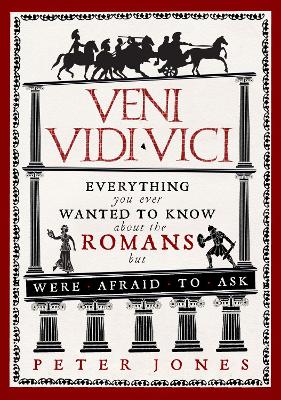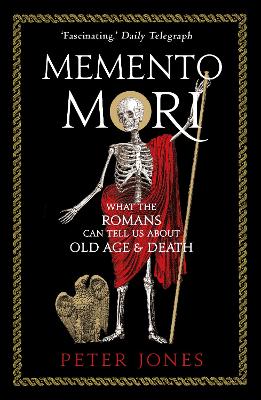Classic Civilisations
3 total works
Fusing a lively and entertaining narrative with rigorous research, Veni, Vidi, Vici breaks down each major period into a series of concise nuggets that provide a fascinating commentary on every aspect of the Roman world - from plebs to personalities, sauces to sexuality, games to gladiators, poets to punishments, mosaics to medicine and Catullus to Christianity.
Through the twists and turns of his 1250-year itinerary, Peter Jones is a friendly and clear-thinking guide. In this book he has produced a beguiling and entertaining introduction to the Romans, one that vividly brings to life the people who helped create the world we live in today.
The ancient Greeks gave us our alphabet and much of our scientific, medical and cultural language; they invented democracy, atomic theory, and the rules of logic and geometry; laid the foundations of philosophy, history, tragedy and comedy; and debated everything from the good life and the role of women, to making sense of foreigners and the best form of government, all in the most sophisticated terms.
But who were they? In Eureka!, Peter Jones tells their epic story, which begins with the Trojan War and ends with the rise of the Roman Empire, by breaking down each major period into a series of informative nuggets. Along the way he introduces the major figures of the age, including Homer, Socrates, Plato, Aristotle, Alexander the Great, Euclid and Archimedes; explores the Greek myths and the role of the gods;provides fascinating insights into everyday life in ancient times; and shows us the very foundations of Western culture.
Eureka! is both entertaining and illuminating, and will delight anyone who ever wanted to know more about our ancient ancestors.
In this revealing and entertaining guide to how the Romans confronted their own mortality, Peter Jones shows us that all the problems associated with old age and death that so transfix us today were already dealt with by our ancient ancestors two thousand years ago.
Romans inhabited a world where man, knowing nothing about hygiene let alone disease, had no defences against nature. Death was everywhere. Half of all Roman children were dead by the age of five. Only eight per cent of the population made it over sixty. One bizarre result was that half the population consisted of teenagers.
From the elites' philosophical take on the brevity of life to the epitaphs left by butchers, bakers and buffoons, Memento Mori ('Remember you die') shows how the Romans faced up to this world and attempted to take the sting out of death.


